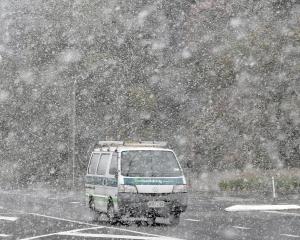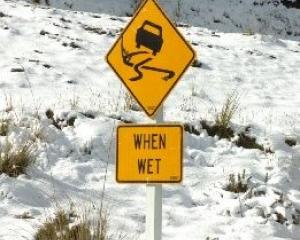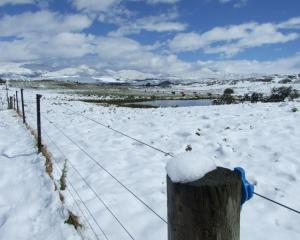Otago people are being urged to prepare for a snowstorm which is forecast to hit the region from tomorrow night.
Temperatures are expected to plummet over southern and eastern parts of the South Island, including Dunedin, from tomorrow night to Thursday morning, with snow falling to near sea level.
MetService is describing this as a significant winter storm.
Exposed parts of the South Island's east coast are likely to experience blizzard conditions for a time during Thursday and Friday.
Otago Civil Defence and Emergency Management Group public information manager Peter Taylor said people should keep in mind snowfalls are likely to cause widespread disruption to road conditions, especially in alpine passes and on higher level roads but also in Dunedin.
Power cuts and disruptions to air travel were also likely.
The snow and rain in the storm is also expected to keep the Taieri, Lower Clutha, and Pomahaka river levels high.
Otago Regional Council flood managers would be closely monitoring these, Mr Taylor said.
People should keep up to-date with the latest forecasts and warnings, stay off the roads when they are dangerous, and drive only if it is absolutely necessary, he said.
If people had to travel, they should be well prepared, and have snow chains, sleeping bags, warm clothing and essential emergency items at the ready.
Drivers caught in a snowstorm should stay in the vehicle and not venture outside; run their engine every 10 minutes to keep warm; drink fluids to avoid dehydration, and open the window a little to avoid carbon monoxide poisoning.
They should have high-visibility clothing and torches in their vehicle.
Mr Taylor said that in a snowstorm, the primary concerns for emergency services are the potential loss of transportation, heat, power and telephone services, and a shortage of supplies if storm conditions continue for more than a day.
Everyone should have the necessities in place to be able to be self-sufficient for three days or more in the event of road closures and power cuts.
That incuded food and water, warm clothing, fuel, alternative lighting, and other emergency supplies. Mr Taylor said.







